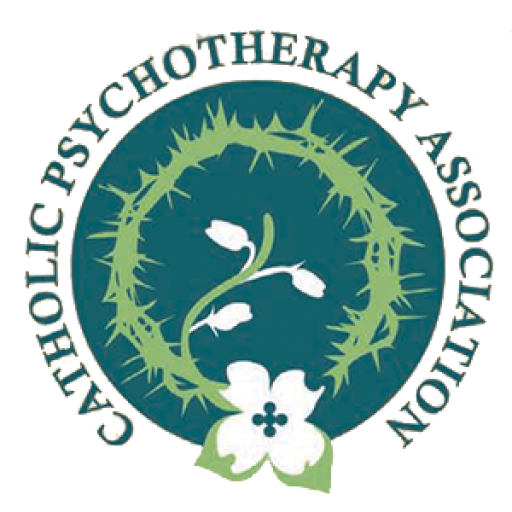The Catholic Psychotherapy Association (CPA), a leading organization supporting Catholic mental health professionals, has joined the Catholic Medical Association and Divine Mercy University in an amicus curiae brief in the landmark U.S. Supreme Court case Chiles v. Salazar. The brief, filed in support of petitioner Kaley Chiles, defends the First Amendment rights of licensed mental health professionals to collaboratively set therapy goals with their clients in line with their fundamental beliefs about human nature and engage in open dialogue involving matters of gender identity or sexual orientation free from government censorship.
The CPA’s brief does not defend coercive or aversive approaches to therapy. Rather, it calls for the legal protection of client-led, faith-consistent therapy grounded in a Catholic vision of human nature, respect for the freedom and dignity of every human person, and clinical integrity.
In Chiles v. Salazar, Colorado licensed professional counselor Kaley Chiles challenges the state’s Minors’ Conversion Therapy Law (MCTL), which prohibits licensed mental health professionals working with minors from engaging in “any practice or treatment… that attempts or purports to change an individual’s sexual orientation or gender identity, including efforts to change behaviors or gender expressions or to eliminate or reduce sexual or romantic attraction or feelings toward individuals of the same sex” (Colo. Rev. Stat. §12-245-202(3.5)(a)). Chiles argues that the law unconstitutionally restricts her free speech and that of her clients, treating therapeutic conversations as regulable “conduct” rather than protected expression. The case, which recently featured oral arguments before the Supreme Court on October 7, 2025, has drawn national attention for its implications on religious freedom, client autonomy, and professional practice implications.
The CPA has joined its voice to that of the United States Conference of Catholic Bishops (USCCB), the Colorado Catholic Conference, the Catholic University of America, and the National Catholic Bioethics Center in supporting Chiles’ position. The CPA’s brief argues that psychotherapy is fundamentally speech-based “talk therapy.” Laws like Colorado’s impose viewpoint-based restrictions, enshrine contested secular views of human nature into law, and contradict traditional Catholic teachings founded on natural law.
“This case has really provided a great opportunity to explain the richness of our Catholic anthropology and how it can fruitfully inform the work of psychotherapy,” says Dr. Andrew Sodergren, Board member of the CPA. “Therapists and their clients should be free to collaboratively set the goals and course of therapy that best aligns with their vision for the human person and human sexuality. For Catholic therapists, this vision will be informed by traditional Catholic teachings on human nature,” Dr. Sodergren adds.
Some Catholic clinicians have filed opposing amicus briefs advocating for a strictly neutral position in psychotherapy, especially pertaining to coercive harmful practices historically associated with so-called conversion therapy. The CPA firmly agrees that coercive approaches and false or exaggerated promises of therapeutic results have no place in ethical mental health care. The CPA also opposes restrictions which limit the freedom of mental health professionals and their clients from formulating therapeutic goals and selecting treatment strategies in line with a Catholic vision of the human person.
Similar to statutes in other jurisdictions, Colorado’s law aims to prohibit coercive practices directed at gender identity or sexual orientation, but it goes too far. It defines “conversion therapy” so broadly that therapists risk fines and professional discipline for pursuing or facilitating client-led goals related to possibly reducing the intensity or frequency of same-sex attractions or help a client come to peaceful acceptance of an identity consistent with biological sex. In effect, the law penalizes one therapeutic direction while privileging another—restricting client autonomy and chilling faith-informed care. The CPA honors the dignity of the human person and upholds individuals’ right to choose treatment that aligns with their values and is grounded in voluntary, informed, and respectful care.
Psychotherapy relies on unrestricted dialogue to help clients achieve self-understanding and well-being. “Colorado’s law not only censors speech but forces mental health professionals to adopt a dualistic view of the person that separates body from soul and perception from biological reality. We stand with Kaley Chiles to ensure that faith-informed counseling remains accessible, protecting the freedoms of both therapists and those they serve,” said Dr. Shannon Mullen, President of the CPA.
Participation in this Supreme Court case underscores the CPA’s commitment to advancing mental health practices founded on Catholic principles. As the case progresses, the CPA urges the Court to reverse the Tenth Circuit’s decision and uphold First Amendment protections that are essential for diverse, conscientious, and comprehensive approaches to healing.
About the Catholic Psychotherapy Association
The Catholic Psychotherapy Association supports mental health practitioners by promoting the development of psychological theory and mental health practice, encompassing a comprehensive understanding of the human person, in conformity with the anthropology of the Catholic Church. Founded to foster integration between faith and psychology, the CPA provides resources, education, and a community for professionals dedicated to ethical, effective, and holistic care.

CPA, I’m inspired by your courage and clarity to help those with unwanted sexual attractions–individuals who wish to live in alignment with their deeply-held convictions. The government should never interfere with this, especially in the context of voluntary speech (which so-called “conversion therapy” bans interfere with). Thank you.